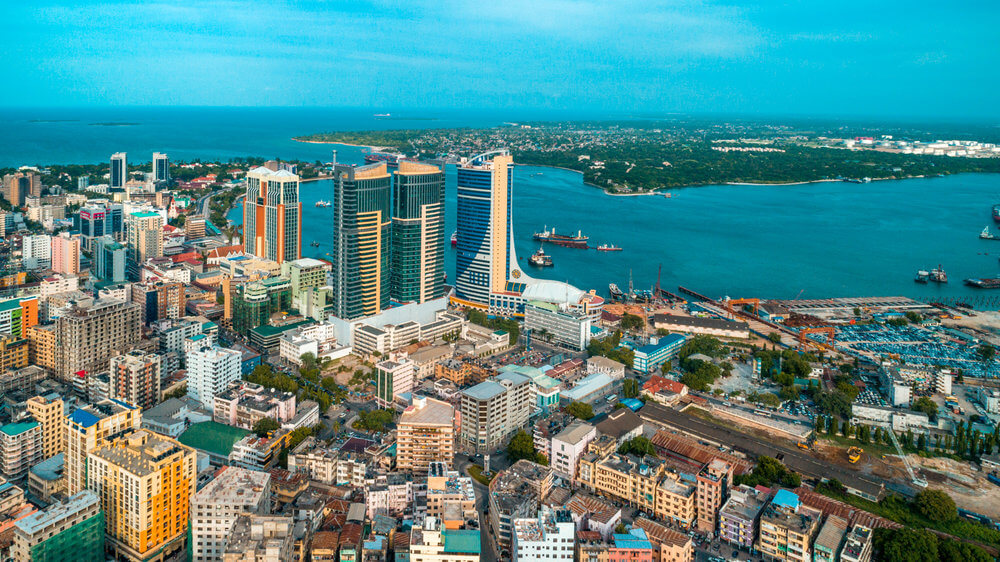
TradeMark East Africa has commended Tanzania’s ongoing Investment Policy Review efforts adding that the review was inevitable if the country was to make more strides in terms of competitiveness within the East African Community (EAC) region.
The revelation comes a few days after Moody’s Investors Service (“Moody’s”) changed the Government of Tanzania’s outlook to positive from stable and affirmed the B2 foreign and local currency long-term issuer ratings on the view that political risks have lessened under the government’s new approach to promoting economic development and engagement with the international community.
Speaking to The Business Wiz Monica Hangi, TradeMark East Africa Country Director for Tanzania said she is not surprised by Moody’s B2 rating as improving business environment in the country is part of the present Government’s priority areas.
“The country is moving in the right direction. “We want to see sustainability in Foreign Direct Investments (FDIs) growth. We do not want to just see a spike then nothing else comes on board in the next few years. Improving business environment has been one on the biggest moves taken by the country so far,” she said.
Hangi added, “The private sector has a big role to play in the country’s economic development process. Involvement of the private sector in doing business has increased and this is bound to increase Foreign Direct Investments (FDIs). If the private sector is not supported or encouraged to grab opportunities, that will not happen,”
She noted that even before the new Government came on board, TradeMark had been working with the fifth phase Government to review the investment policy which was written in 1996.
“You can imagine for all this time we have been implementing a policy drafted in 1996 and a lot of things have changed nationally, regionally and even globally but all those aspects had not yet been taken on board,” she said.
Hangi said the process of reviewing the policy has already commenced by engaging all local stakeholders plus stakeholders from the international community and development partners all geared towards setting priorities and roles to ensure investment climate in the country improves.
“That being the target, the Government prioritised reviewing the Investment Act which was tabled two weeks ago. The Government a few days back also circulated a curricular for people to share their views and thoughts on the policy and the act. It’s my hope that the country will be in position to come up with an investor friendly policy when the process is finalised ” she added.
She said TradeMark in partnership with the Government have already developed the investment single window geared towards improving ease of business registration and improve investors’ confidence.

Moody’s Ratings Rationale
Despite Tanzania’s wealth of natural resources, inflows of FDI have been muted in recent years due to ongoing policy and regulatory uncertainty. Policy uncertainty was most notably impacting investment in the mining sector until a protracted dispute was finally settled in late 2020 and an export ban was lifted.
After assuming power in 2021, the new presidential administration began actively courting international investors and nascent signs of improving investor sentiment towards Tanzania have since emerged, including several investments in the mining sector and renewed momentum behind the long-delayed energy projects.
Sustained foreign investment in export sectors would increase growth potential in Tanzania, the country’s resilience to external shocks and the government’s fiscal capacity.
The government’s structural reform agenda offers the prospect of delivering lasting improvements to
Tanzania’s institutional framework and supporting private sector growth. Initial steps to improve the business and investment climate include relaxing regulations for foreign work permits, streamlining VAT refunds, and tabling legislation that supports local businesses.
The ongoing efforts to improve the regulatory environment, reduce non-tariff barriers and improve the quality of national statistics offers the prospect of delivering sustained increases to potential growth.
In the current context of a global shock triggered by Russia’s invasion of Ukraine, and while inflationary pressures in Tanzania have remained relatively muted, the signs of improvements in the business environment above support the country’s capacity to face potential future economic and financial pressure.






